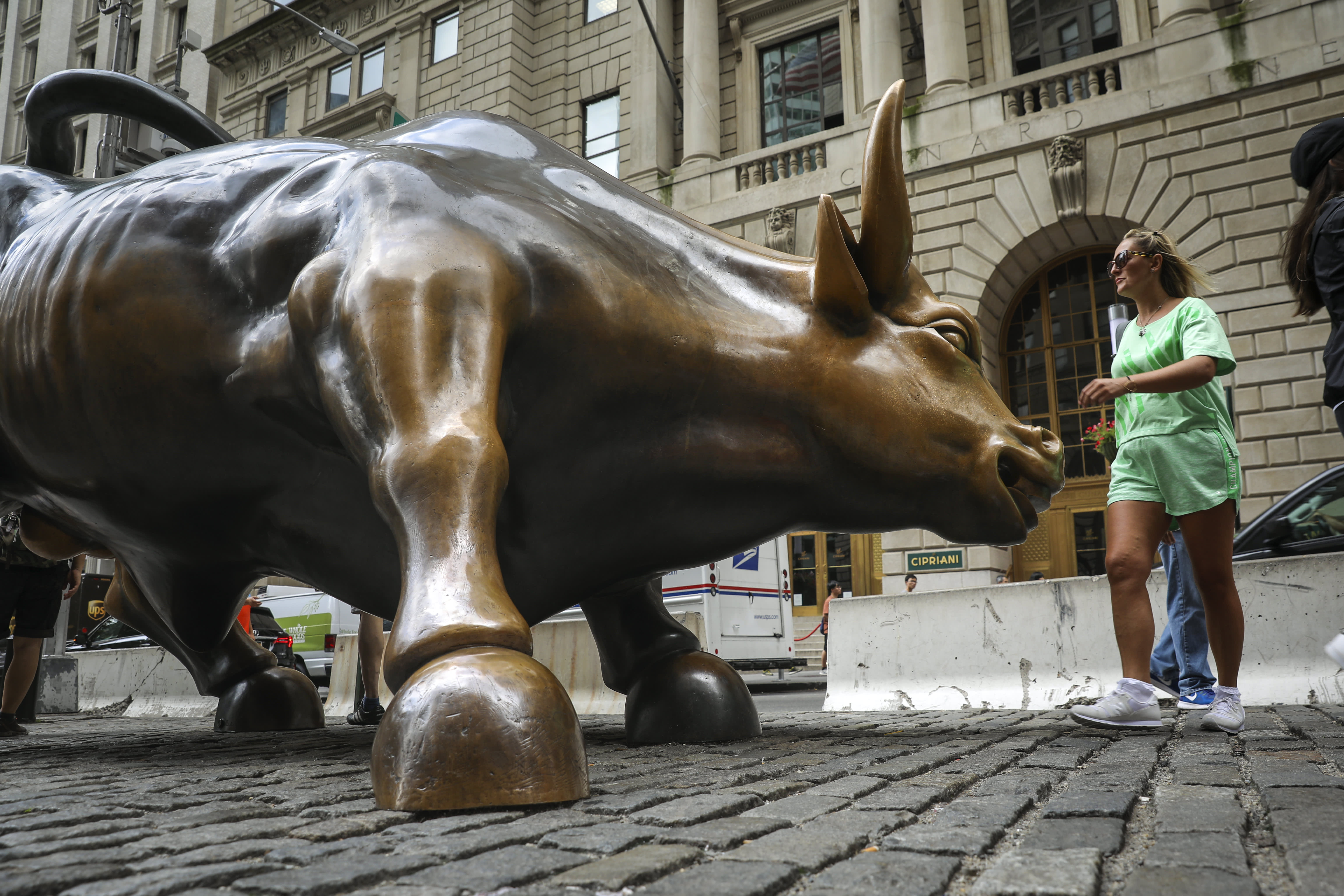
The “Charging Bull” statue at Bowling Green in New York’s Financial District.
Drew Angerer | Getty Images
The U.S. stock market is hitting choppy waters, again.
This week, U.S. indexes slid on concerns that the Federal Reserve would begin to taper its monthly bond purchases before the end of the year. The S&P 500 and Dow Jones Industrial Average suffered their second-straight day of losses Wednesday, with the Dow falling more than 380 points for its worst performance in more than a month.
Some analysts are concerned that the market could be in for a correction – meaning a slump of 10% or more – after the Dow and S&P 500 earlier this week rallied to record highs. Currently, the S&P 500 sits about 2% below its all-time high, and the Dow is about 2.5% below its own record.
Still, both indexes are up roughly 17% and 14% on the year, respectively, through Wednesday’s close.
While volatility can be troubling for investors, experts caution against any hasty selling when markets fall or trying to time a market correction. In addition, slumping stock prices can be a prime buying opportunity that investors should take advantage of.
Volatility is common
First, accept market volatility — which is relatively common — as a normal part of the process of investing and the best way to outrun inflation, said certified financial planner Brad Lineberger, president of Carlsbad, California-based Seaside Wealth Management, which manages about $165 million in assets.
“Embrace the volatility, because it’s why investors are getting paid to own stocks,” he said.
This means investors should stay calm even through extreme movements. As stocks have gyrated in recent months, long-term market returns are still based on the same things: dividend yields, earnings growth and change in valuation, according to Zach Abrams, a CFP and manager of wealth management at Shaker Heights, Ohio-based Capital Advisors, which manages around $800 million in assets.
More from Invest in You:
Some workers who want to quit are willing to go into debt. Do this instead
Here’s how to decide if you should — or shouldn’t — accept a counteroffer
10 work-from-home jobs that pay six figures
Movements up and down can also be a good time to review your asset allocation. If you’re worried about a big drop, you could rotate part of your portfolio into some less-risky stocks to protect from a potential market correction.
Volatility can be your friend
In addition, sharp moves down can also be opportunities to buy more stocks and set yourself up for future gains, according to Abrams.
This is because when stocks fall from recent highs, they’re trading at a discount and will likely rebound at some point, which sets investors up for larger returns.
Continuing to put money in the market when it’s down as opposed to selling is a great way to make sure you don’t miss out on a rebound. Data shows that selling when the market goes down can take you out of the game for some of the strongest rebounds.
For example, if you missed the best 20 days in the S&P 500 over the last 20 years, your average annual return would shrink to 0.1% from the 6% you’d have earned if you’d stayed the course.
Make a plan and stick to it
Sticking with your overall plan is generally the best thing you can do through a market slump, instead of panicking and selling too soon.
For investors who may be in or near retirement and more worried about a market fall, it’s important to shift investment thinking to protecting their assets from growing them or aiming for the highest return, which can mean taking outsized risks.
“Managing the risk is a really important part,” said Leyla Morgillo, a CFP with Madison Financial Planning Group in Syracuse, New York, which oversees about $200 million in assets. “It’s not about trying to shoot for the highest rate of return you can; it’s about protecting what you have.”
To stay committed to this goal, advisors recommend making a plan or road map for retirement investing long before you leave the workforce. This will act as a safeguard against making bad emotional decisions with your investments during extreme market events.
“Have the discipline to stick to your plan even when it doesn’t feel like the right thing to do,” Lineberger said. “Checking your emotions at the door is the hardest aspect of being a successful investor, but it’s the most important thing to do.”
Have an emergency fund
Of course, even if you know that stock market volatility can benefit you in the long-run, financial advisors still recommend having a cash emergency fund on hand so that you can make it through a market meltdown without selling.
If the stock market falls, it’s better to spend the money in your emergency fund than sell assets at a loss that can’t be recouped, according to Tony Zabiegala, chief operations officer and senior wealth advisor at Strategic Wealth Partners, an Independence, Ohio-based firm with more than $500 million in assets under management.




